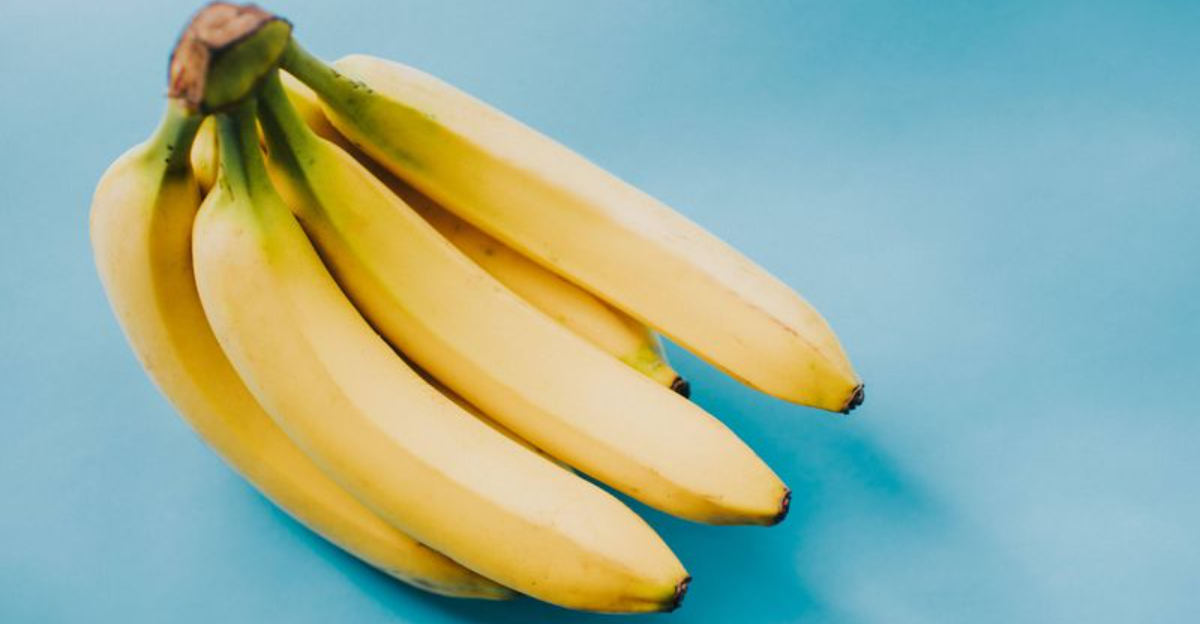14 Common Banana Myths Explained

Bananas: lovable, yellow, and misunderstood. For a fruit that’s basically nature’s snack bar, it sure carries a bunch of bogus claims.
Are they radioactive? Are they fattening? Are they even a fruit? Time to peel back the nonsense, slip on some truth, and debunk the myths that have been monkeying around in our heads for way too long.
1. Artificial Banana Flavor Comes From Extinct Bananas
Ever heard artificial banana flavor exists because the original banana went extinct? Pure fiction!
The flavor comes from isoamyl acetate, a compound still abundant in today’s Cavendish bananas. While the Gros Michel variety did nearly disappear from disease, it didn’t take its flavor with it.
2. Bananas Grow On Trees
Surprise! Those tall banana plants aren’t trees at all.
Botanically speaking, bananas grow on giant herbs – the world’s largest herbaceous flowering plants. Their sturdy trunks are actually pseudostems made of tightly packed leaf sheaths, not woody material like true trees.
3. Bananas Are The Best Source Of Potassium
Bananas get all the potassium glory, but they’re not the top contenders.
White beans pack nearly twice the potassium per serving. Avocados, spinach, sweet potatoes, and even coconut water outrank our curved yellow friends. Bananas contain about 400mg of potassium – good, but definitely not the champion.
4. Bananas Make You Gain Weight
Weight-conscious folks often shun bananas, believing they’re fattening. The reality? A medium banana contains just 100 calories.
With virtually no fat and plenty of filling fiber, bananas can actually support weight management. Their natural sweetness satisfies cravings without the empty calories of processed snacks.
5. Green Bananas Are Bad For You
Green bananas might make your face pucker, but they’re nutritional powerhouses.
These underripe fruits contain resistant starch, a prebiotic fiber that feeds beneficial gut bacteria. They also have a lower sugar content and help stabilize blood glucose levels better than their riper counterparts.
6. Bananas Spike Your Blood Sugar Too Fast
It’s a common misconception that eating bananas can cause your blood sugar to spike.
Bananas raise blood sugar levels more gently than many processed carbohydrates, with a moderate glycemic index of roughly 51.
Particularly when combined with protein sources like nut butter, their fiber content further delays digestion.
7. Bananas Contain Added Sugar
Some folks mistakenly believe food companies sneak extra sugar into bananas. Ridiculous, right?
All sweetness in bananas comes naturally as the fruit ripens. Starches convert to sugars – primarily glucose, fructose, and sucrose – through the banana’s own enzymes. No sneaky sugar injections required!
8. Bananas Prevent Muscle Cramps
Athletes worldwide reach for bananas to prevent muscle cramps, but science doesn’t fully support this habit.
While bananas do contain potassium, research suggests hydration status and sodium levels play more significant roles in preventing cramps. Bananas are healthy, but they’re not magical cramp-blockers.
9. All Bananas Are Nutritionally The Same
The spotty banana sitting on your counter isn’t nutritionally identical to its greener sibling.
As bananas ripen, their nutritional profile transforms. Green bananas offer more resistant starch and less sugar.
Yellow ones provide more antioxidants and greater digestibility. Brown spotted bananas contain the most antioxidants but highest sugar content.
10. Banana Peels Can Get You High
Do you recall the tale from the 1960s about getting a psychedelic high by smoking banana peels? Complete nonsense!
Originally, this tale was a fake that appeared in the underground Berkeley Barb newspaper. Banana peels have no psychotropic substances, despite frequent myths to the contrary. You will just get a headache and maybe a lungful of regret if you smoke them.
11. Bananas Make All Smoothies Healthier
Tossing a banana into every smoothie seems like a health boost, but sometimes it backfires.
Banana enzymes can actually block absorption of certain antioxidants from berries. For maximum nutritional benefit, consider alternating between banana-based smoothies and those featuring other fruits as the creamy base.
12. Banana Chips Are Just As Healthy As Fresh Bananas
Those crunchy banana chips seem like a convenient way to enjoy bananas on the go. Reality check: most commercial varieties undergo a nutritional transformation.
Typically deep-fried in oil and coated with added sugars, banana chips pack far more calories and fat than fresh bananas. A small handful can contain triple the calories of a whole fruit!
13. Bananas Are Endlessly Abundant And Safe
We take bananas for granted, assuming they’ll always be available in supermarkets worldwide. This confidence is shaky at best.
Today’s commercial banana industry relies almost exclusively on the Cavendish variety, creating dangerous genetic uniformity. Tropical Race 4, a devastating fungal disease, threatens global banana crops with no effective treatment in sight.
14. Bananas Bring Bad Luck On Boats
On fishing vessels, bananas have long been seen as unlucky by sailors. Mystic forces have nothing to do with this myth.
The actual offenders? Due of their rapid ripening, bananas attract flies and can ruin other goods. Additionally, because banana boats moved quickly to deliver perishable fruit, fisherman who followed these swift boats had less time to fish productively.
